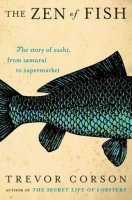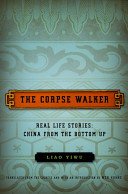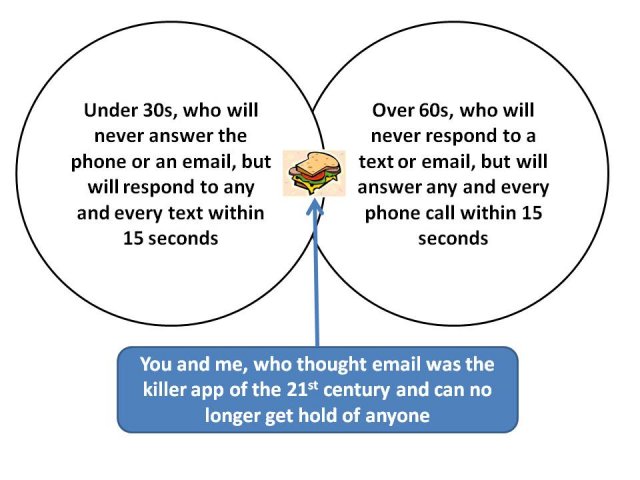So, Orlando finally gets a Wawa! Nowhere near us yet, but there's hope.
I'm still waiting for a Trader Joe's....
 Several months ago, Porter signed us up for a pre-anniversary present of tickets to the Orlando performance of The Screwtape Letters. I tucked them carefully away in my Tickler file, and last week they popped up. I'm very grateful for the Tickler and for Google Calendar—when you book things so far in advance it's all too easy to forget, especially in a season of other big events. It was a delightful post-Christmas outing.
Several months ago, Porter signed us up for a pre-anniversary present of tickets to the Orlando performance of The Screwtape Letters. I tucked them carefully away in my Tickler file, and last week they popped up. I'm very grateful for the Tickler and for Google Calendar—when you book things so far in advance it's all too easy to forget, especially in a season of other big events. It was a delightful post-Christmas outing.
The location, the Plaza Live theater, was initially disappointing, as it looks—and smells—like the converted movie theater it is. But that was easy to forget once the show started.
Not so easy to ignore was the excessive volume of the music and sound effects. I did not want to resort to my earplugs, because the speaking part was of a reasonable volume, but after several assaults I gave up, and was still able to hear the monologue. Yes, it's a monologue, though not a one-man show. But the other character, Screwtape's secretary, Toadpipe, is a mime. And played by a woman, so maybe it is a one-man show after all.
How do you adapt a book, consisting entirely of a series of letters, to the stage? With difficulty, but they did a commendable job. The stage setting is in Hell, where Screwtape is dictating his letters. Toadpipe's acrobatics and the sound effects provide enough action to keep the show moving. For what it is, the show is very well done, and should have large audience appeal. It received a very positive review from the Orlando Sentinel. Even I enjoyed it, no doubt because the script was so faithful to the original. I know the book well enough to recognize that large sections were performed verbatim. Much was, of necessity, left out—I had wondered how they would handle the part where Screwtape turns into a cockroach; they didn't—and there were one or two places where I thought there might have been just a little modernization. But it's hard to beat C.S. Lewis for writing, so I'm glad they didn't try. Best of all, the show stays true to the character of the book.
No show could replace the book itself. But for an introduction to the book, it's a good performance. If only they had turned the volume down!

A Boy's War by David Michell (OMF International, 1988)
In 2010, revelations of unspeakable abuse of missionary children at not one but two West African boarding schools only confirmed my intense belief that missions organizations sinned greatly against the very families that gave everything to serve with them, by expecting—often requiring—parents to send their children away to boarding school at a very young age. After all, isn't one of the (multiple) lessons of the Old Testament story of Abraham's willingness to sacrifice his son Isaac, the counter-cultural message that God does not ask parents to sacrifice their children, but himself provides the sacrifice? How did the organizations dare preach Jesus Christ while demanding sacrifices to Moloch? I'm not talking about high school-aged children who chose to go to boarding school for the sake of a better education and preparation for college, but little ones, as young as six, whose education would have been better accomplished at home with their parents. I daresay the parents' missionary work would have benefitted as well, as the native peoples would have more easily accepted them as fellow human beings as they watched them interacting as families.
Granted, there are many excellent boarding schools. My quarrel is not with families who choose this as the best educational option for their children, but with the missions that mandated the practice. Why did the organizations rip children away from their parents in the name of God, and why did their parents put up with it? It was a long time before I came up with a theory: it may be because so many missions organizations have their roots in England, and other countries where sending small children off to boarding school was standard practice, a historical and cultural given. (More)
Why do Jehovah's Witnesses bring out the worst in me? They're only doing what they think is best.
I'm not good with any form of un-asked-for solicitation, be it door-to-door, phone, e-mail, blog comment, junk mail, or any other form of spam. I don't like being rude, but I've found that a quick, "No, thank you; I'm not interested," followed immediately by hanging up the phone or closing the door, to be the solution that wastes the least amount of time—not only mine, but theirs. Why let them go on and on when I know I'm not going to give in to whatever they're selling? I did know someone who would, on occasion, invite them in, and let them go on and on, thinking they were about to make a sale, until the whole evening was used up. He figured he was saving several dozen other folks from having their evenings interrupted, and he found it somewhat amusing. (Reality TV hadn't been invented yet.) But that's not me.
When it comes to JWs, I also know people who will invite them in, serve them coffee, and spend the evening preaching the gospel to them. I admire those who can do that, but it's definitely not me. (More)
Permalink | Read 2407 times | Comments (4)
Category Everyday Life: [first] [previous] [next] [newest]
It's not polite to think about items you didn't get for Christmas while we're still in the Christmas season. But hey—at least no one thinks I'm hinting for a gift as I ponder things.
Those who know me will be shocked at what I am about to reveal, almost as shocked as when I admitted that I might actually want to own a Wii. Oops, I haven't actually confessed that here yet. But I had such a blast with the Wii Fit over Thanksgiving....
I am a book-lover. That is, a lover of real, paper, take-'em anywhere, you-own-it-and-Amazon (or whoever)-can't take it away kinds of books. Books that smell like books. I dislike reading on a computer screen. Back in the Dark Ages of last century, I tried reading a book on my then-leading-edge Palm handheld device. Yuck.
However, the thought of owning an e-reader (Kindle, Nook, etc.) is slowly breaching my event horizon. For one thing, the price is coming down. I had dismissed Kindle early on, at the mere thought of holding a $300 "book" that would likely to break if dropped. But $100 is a little less scary. More than 2/3 less scary, for some reason.
Then this morning I was struck by two prods in the e-book direction. First, an e-mail from Janet inquiring about a certain book, which opened my eyes to the idea that one can give e-reader books instantly, without worrying about delivery time or overseas shipping charges.
Shortly thereafter I read Conversion Diary's 7 Quick Takes Friday, from which I quote: (More)
(Continued from Pre-Christmas Fun.)
You wouldn't think that with just the two of us it would still take all day to open presents, but it very nearly did.
We slept a little late, due to yesterday's exhaustion, but we can never sleep in much, even without the pleasure of being awakened to Christmas carols on the clarinet. (Yes, that is a pleasure! We missed that this year.) I finished the few preparations that I'd negelected last night, and we sat down to open our stockings.
Mothers—sometimes fathers, but more commonly mothers—often develop the bad habit of filling their own stockings. For one thing, and this is unavoidable, if you have a gift that everyone gets (in our house this includes Toblerone, Mentos, citrus fruit, a coin) it makes sense to drop one into each stocking. It would look very strange for one person to be left out. But beyond that, it's just a bad habit. One parent takes on the role of chief stocking-filler, and the other is content to let that stand. In our case, when we had guests, this was almost a necessity, as so many moms were contributing to stockings that they overflowed without the dads having a chance. But this year, I resisted. There were only two of us, and why should I deprive Porter of the joy of finally having a chance to be Santa Claus with more than his traditional dollar coin? So when I picked up a set of combs for each of us, I wrapped Porter's but put mine in the drawer. When I bought tape, I wrapped some for Porter's stocking, but did not put any in my own. Etc.
What a good decision! Porter is a great Santa Claus! So here is a word to all moms caught in my trap: Share the joy! Even if it means prodding your man a bit to get him started. Why should moms do all the work have all the fun?
On to breakfast! As usual for Christmas day, the clementines from the toes of our stockings were the only part of breakfast we could consider healthful. But mmmmm! Raspberry kringle (thanks, NMKB!), Dutch banket (pastry filled with almond paste), almond raisin bread ... you get the picture. When our children were young Christmas breakfast was primarily Lucky Charms, as Christmas and birthdays were the only occasions sugary cereals were allowed in the house. We adults prefer our sugar in different forms, but Christmas morning at our house is traditionally overwhelmingly sweet. Traditional for our family, that is. Growing up in my own family, I don't remember any particular Christmas breakfast traditions besides a stocking tangerine, and an "eat faster so we can get to the Christmas tree!" attitude. My parents graciously, but with a show of reluctance, conceded to drink their after-breakfast coffee in the living room.
Neither of us drinks coffee, but I would have brought my tea into the living room if we had had time. But it was then time to get ready for church. (More)
Permalink | Read 2674 times | Comments (6)
Category Everyday Life: [first] [previous] [next] [newest]

The Zen of Fish: The Story of Sushi, from Samurai to Supermarket by Trevor Corson (HarperCollins, 2007)
Eating sushi is like rearing children: there's always someone happy to point out that you're doing it all wrong.
Not that I care much. So what if many of the rolls I love are American inventions? If the Japanese consider them to be inside-out rolls? If adding more seasoning to your roll is an insult to the chef? (Well, I suppose I care a bit more about the last. I don't like insulting people, especially not those who are providing my dinner. Then again, I'm the one eating it.) I like Japanese sushi; I like American sushi; and I don't mind being too unsophisticated to enjoy the sea urchin and raw quail egg combo that Porter ordered in Boston.
However, I was happy to learn that sushi is meant to be eaten with the fingers, not chopsticks. And eaten in one bite—though I'm not sure how. Do the Japanese have larger mouths than Americans? Seems unlikely.
The Zen of Fish weaves the history, science, and culture of America's unexpected food craze together with the adventures of students at the California Sushi Academy. It's well-written, highly informative, fun to read, and will make you very hungry—when it's not causing you to rethink consuming fish in any form. My only complaint is that the author apparently considered his target audience to be largely made up of adolescent boys. I could have done without most of the sexual references and innuendo—although it was quite cool to learn about the shrimp that start out male, then after a few years become female. The timing of the change assures a gender-balanced population, suggesting perhaps that shrimp are smarter than people.
Okay, even writing about sushi makes me hungry.
This post was going to include Christmas Day, but it turned out to be pretty long, so I've divided it into two parts.
Last Sunday we enjoyed the Festival of Nine Christmas Lessons and Carols at the Cathedral Church of St. Luke, featuring the Boy Choir and Girls Choir. I'm tired of hearing that today's kids only want to sing pop songs! If that's all they hear, of course that's what they'll want to sing. But these boys and girls sing excellent music from several centuries, and with beautiful, pure voices. The singers included a couple of friends of ours: one boy man, now a college graduate (alumni are invited to sing with the choirs), whom we knew as a very young Suzuki violinist, and a second-generation Girl's Choir singer whose mother we knew when she was in high school. Perhaps my favorite part of the service, however, was the instructions, printed in the bulletin, to the congregation. No slackers allowed: "Please stand and sing the entire hymn in harmony." (Emphasis mine.) That and seeing several long-time friends (I've reached the age when "old friends" is not the preferred term) at the excellent reception afterwards.
Friday night we took a break and returned to the Morse Museum for our third time in a month: they showcase music as well as art during this season. We didn't stay long, however, and spent most of the time talking to some friends we unexpectedly met. We would like to have returned Saturday, when the Raintree Chamber Players were to be featured, but that was Christmas Eve, and we had a few other plans.... (More)
Permalink | Read 2483 times | Comments (0)
Category Everyday Life: [first] [previous] [next] [newest]
Here's one reason why it's more fun to be Episcopalian/Anglican/Catholic/Orthodox or anyone else for whom Christmas lasts a full twelve days.
Permalink | Read 2659 times | Comments (0)
Category Just for Fun: [first] [previous] [next] [newest]
Don't forget NORAD Tracks Santa! (I see they have some new videos this year.) As I write this, Santa is at the International Space Station. I'd love to see what a reindeer wears for a space suit.
This is for our children, who never considered themselves Disney fans as the world knows Disney, but who grew up in Mickey's backyard. Happy memories! (H/T Richard S. and the GGGAMB)
Happy Christmas to all, and to all a Good Night!
Permalink | Read 3283 times | Comments (0)
Category Random Musings: [first] [previous] [next] [newest]

This will be my last 7 Quick Takes Friday, at least on a regular basis. It's been fun thinking in this way, and I have enjoyed reading other people's Quick Takes. But it takes a lot of time (it's not "quick" for the writer, at least not for me), and if I spread the work out over the week, well, why not publish immediately rather than wait till Friday? I think getting seven posts all at once overwhelms some of my readers, too. Perhaps I'll do more 7 Quick Thanks posts, or gradually collect short posts around a theme for an occasional 7 Quick Takes.
It's probably due more to the season than to my joining the 7 Quick Takes gang, but I've been overwhelmed with spam comments since commencing. I wonder if it will drop off now (whether due to my dropping out or to the end of the infamous Shopping Season), or if that door has been opened never to close.
Any real, human readers who stopped by via the 7 Quick Takes program are welcome to come here directly. :)
Requiem Aeternam Dona Ei, Domine. One of my strongest memories from 1968 is the feeling of desolation as Soviet tanks rolled into Czechoslovakia. RIP Václav Havel.
"Truth and love must prevail over lies and hate."
— 3 —
Steven E. Landsburg was a math classmate of mine at the University of Rochester. I remember him chiefly for his brilliance and for his decision to forgo a bachelor's degree in favor of a master's because the master's program had no physical education and language requirements. (The link in his name takes you to the Wikipedia article on Steve, which has, as far as I can tell, at least one error—I believe it was his bachelor's degree, not his master's, that he received after becoming a professor of economics at the U of R. The University of Chicago would hardly have accepted him into its PhD program with no degree at all.) Steve appeared in the Wall Street Journal last month with this article: A Short Econ Quiz for the Super Committee. Here's how it ends:
The government's chief asset—in fact, pretty much its only asset—is its ability to tax people, now and in the future. The taxpayers are the government's ATM. Make a withdrawal today, and there's less available tomorrow.
Now the ability to tax is a pretty huge asset and the government has not (yet!) come close to depleting it. In that sense, there's a lot of money in the bank. But no matter how much you've got in the bank, a policy of ever-increasing withdrawals is nothing at all like a decision to earn more income. It's important to get the analogy right. And it's clear from the blogs and the op-ed pages that not everybody gets this.
Instead, the notion persists that an extra trillion in federal spending can be converted from "irresponsible" to "responsible" as long as it's accompanied by an extra trillion in tax hikes. That's like saying a $500 haircut can be converted from "irresponsible'' to "responsible'' as long as you withdraw the $500 from your bank account. If the super committee loses sight of this fundamental truth, it is doomed to fail.
Once upon a time, the United States had huge assets independent of its ability to tax people. We had the better part of a whole continent, in fact. Sometimes I wonder if we were any wiser than Napoleon in disposing of our riches.
 Too Much of a Good Thing? I love Christmas music, and we have a huge collection thereof: over 500 songs at last count, from Medieval chant to Mannheim Steamroller. I'm not complaining! But I do wonder, occasionally, if I might have been richer as a young child, with three or four 33 1/3 rpm vinyl records of Christmas music that I loved dearly, knowing nearly every word, note, and album cover by heart.
Too Much of a Good Thing? I love Christmas music, and we have a huge collection thereof: over 500 songs at last count, from Medieval chant to Mannheim Steamroller. I'm not complaining! But I do wonder, occasionally, if I might have been richer as a young child, with three or four 33 1/3 rpm vinyl records of Christmas music that I loved dearly, knowing nearly every word, note, and album cover by heart.
 Brad Smith. Brad who? That's what I said. Our Christmas collection has been enriched by the fact that Janet's massive CD collection largely resides with us, and this year I added her Christmas music to the playlist on the mp3 player that pours out random Christmas treats as we go about our work. With all the new music, I often found myself thinking, "That's a wonderful arrangement; what's it from?" Time and time again the answer turned out to be Brad Smith's The Gift: A Christmas Celebration. (Click on the link to hear samples.) A little research revealed that Brad Smith is a master craftsman—a woodworker. But he is also an artist of a different sort, a musician—a master of the oboe and English horn, as a matter of fact, which explains both his presence in Janet's collection and my captivation with his music.
Brad Smith. Brad who? That's what I said. Our Christmas collection has been enriched by the fact that Janet's massive CD collection largely resides with us, and this year I added her Christmas music to the playlist on the mp3 player that pours out random Christmas treats as we go about our work. With all the new music, I often found myself thinking, "That's a wonderful arrangement; what's it from?" Time and time again the answer turned out to be Brad Smith's The Gift: A Christmas Celebration. (Click on the link to hear samples.) A little research revealed that Brad Smith is a master craftsman—a woodworker. But he is also an artist of a different sort, a musician—a master of the oboe and English horn, as a matter of fact, which explains both his presence in Janet's collection and my captivation with his music.
Variations on a Dream (Cookie). Dream Cookies were a favorite with my family growing up, and equally so with our family now. I don't know where the original recipe came from; as far as I'm concerned, it's my mother's. :) It came a bit later in my life than the other cookie recipes I consider essential for a traditional Christmas, but I'll bet my siblings don't remember a time without Dream Cookies. Here is the original recipe:
Dream Cookies
- 1 cup butter, softened (Actually, we often used margarine, back in the days when it was considered healthier. The taste was still good, though different.)
- 1 cup sugar
- 1 teaspoon vanilla
- 2 cups flour
- 1 pinch salt
- 1 teaspoon baking powder
Preheat oven to 300°F. Cream butter; add sugar, and beat until light. Mix in vanilla. Sift dry ingredients together. Add and mix well. Form into small balls; dip in colored sugar crystals and place on ungreased cookie sheet. Bake for about 18 minutes until done but not browned. Alternatively, instead of dipping dough in sugar crystals, try dipping warm, baked cookies in a mixture of ¼ cup confectioner's sugar and 1 teaspoon nutmeg.
And here's the new version I created recently. It was a huge hit.
Variations on a Dream
- 1 cup butter, softened
- 1 cup sugar
- 3/4 teaspoon Penzeys double-strength vanilla (Regular vanilla would probably do.)
- 1 tablespoon Penzeys almond extract (I'm a Penzeys snob, but you could use another brand.)
- 2 cups King Arthur white whole wheat flour (Does anyone else make white whole wheat flour?)
- 1 pinch salt
- 1 teaspoon baking powder
Preheat oven to 300°F. Cream butter; add sugar, and beat until light. Mix in vanilla and almond flavorings. Stir dry ingredients together. Add and mix well. Form into small balls (we always did this by hand, but I find my new cookie scoop works very well, too); dip in colored sugar crystals and place on ungreased cookie sheet. Bake for about 18 minutes until done but not browned. I suspect the powdered sugar/nutmeg version would not work well with the almond flavor, but who knows?
— 7 —
Thoughts on the Incarnation. For years I unthinkingly accepted the admonition that Easter should be a more important holiday for Christians than Christmas. After all, the resurrection of Christ is the one spectacular event on which Christianity stands or falls.
Or is it? If it is unique and astonishing that a man so clearly dead should in three days be so clearly alive, and alive in such a new way that he has a physical body (that can be touched, and fed) and yet comes and goes through space in a manner more befitting science fiction—is it any less unique and astonishing that God, the creator of all that is, seen and unseen, should become a human being, not in the shape-shifting ways of the Greek gods, but through physical birth, with human limitations?
Debating which holiday is more significant for a Christian is like asking whether my left or my right leg is more important for running.
A very Merry Christmas to all !
God bless us, every one.
For more Quick Takes, visit Conversion Diary!
Permalink | Read 2904 times | Comments (6)
Category Random Musings: [first] [previous] [next] [newest]

The Corpse Walker: Real Life Stories, China from the Bottom Up by Liao Yiwu, translated by Wen Huang (Pantheon, 2008)
With a title like The Corpse Walker, you might expect this to be a frightening book. And you would be correct. But there's not a zombie in sight.
We are so Euro-centric. We repeatedly hold up Adolf Hitler and Nazi Germany as the epitome of evil. If pressed, we might acknowledge Joseph Stalin, but Russia is more distant, foreign, and unknown than Germany. Compared with Mao Zedong's China, however ... well, you can read more about that in this article on democide.
The Lord of the Flies meets 1984. Liao Yiwu's book is must reading for anyone who still hangs on to the idea that unfettered human nature is basically good, or that the acquisition of power is not one of the most deadly, corrupting circumstances ever. (More)

This is for my Carngie Mellon MechE grad daughter, who loves gears. Check out the rest of this Celebrating a Simple Life post for more fascinating videos and a TED lecture by kinetic sculptor David Roy.
One of my favorite lost causes. Just when the Republicans have about convinced me to vote for Barack Obama in the coming election, along comes Joe Biden to shove me in the other direction. The Obama administration has given up on the dollar coin. "Nobody wants them," Biden said. One would think a politician would know better than to call any voter a "nobody." I want the dollar coins, very much, and make a point of spending them when I get the opportunity. I'd like to see two- and five-dollar coins, as well. What I don't want are 1-, 5-, and maybe even 10-cent coins. and yet "the Mint says it is committed to producing the one-cent pieces." My Favorite Economist says that is technically an incorrect statement: The Mint has nothing to say about what gets minted—that is completely up to Congress. Which is why the dollar coins will still be minted in limited quantities. It's also a specious argument to say that eliminating the coin will save $50 million per year, without mentioning how much would be saved by eliminating the dollar bill. I've seen estimates ranging from $183 million to $500 million per year, depending on whether or not we bite the bullet and close down the secondary branch of the Bureau of Engraving and Printing. Here's more from My Favorite Economist:
Getting rid of the bill makes more sense. Did we have 10-cent bills when we were kids? A dime from then (pre-65) is worth over $2.30 in silver now. Even using the government's own inflation numbers a dollar is down to 13.7 cents from 1964.
Politically, however, the powerful states Massachusetts and Texas are both against the idea. Massachusetts is where the paper for our currency is made, and the second Bureau of Engraving and Printing—which could be eliminated if the $1 bill were no longer printed—is in Texas. In this season of "payroll tax holidays" and other stupid PR moves to give the public bread and circuses, reasoned argument does not prevail.
Americans are wedded to the $1 bill because they think if it exists it will still be worth something. Getting rid of it is a psychological admission that the currency has gone to junk. Same thing about the utterly useless cent. Now there is a coin the Congress should eliminate.
You can read more about the benefits of replacing small-denomination bills with coins from the Dollar Coin Alliance. The EU, Switzerland, the UK, Australia, New Zealand, Canada, and Japan are among the major countries where the change in your pocket has real value. If we can't muster the political will to make this change, what hope do we ever have of adopting the metric system? That switch was predicted to be "imminent" when I was a child ... half a century ago.
The Tooth Fairy Economy. It's all well and good to talk about inflation-adjusted dollar values, but what does it all mean? When I was losing my primary teeth 50+ years ago, the Tooth Fairy routinely left a dime under my pillow (molars earned a quarter, presumably because of their size). In 2011, according to the Official Tooth Fairy Poll, the average American child received $2.52 per tooth. (I think the Tooth Fairy should leave coins, not bills, which is a bit awkward when your largest widely-circulating coin is the quarter.)
Do you want to know how the American economy is doing? Forget Dow Jones and the NASDAQ—check out the Tooth Fairy Market Price:
My Political Statement. This year we ended our Christmas newsletter with the following: I’ve spared you the mundane as well as the bad, the ugly, and a lot more of the good than you see here. You don’t need to know about work frustrations (but still employed), computer problems (but still functioning), or health issues (but much to be thankful for); no doubt you have plenty of your own. And you certainly don’t want to hear any comments about the current political or economic situation! I'm sure that's true of most people, but one friend responded, "I would be very interested in your comments about the current political situation!." So this is for you, Jamie. (Not that I have any assurance that he ever reads this blog.....)
- We have a Democratic president, many of whose policies I think are disastrous. I pray for him daily.
- We have a Republican state governor, many of whose policies I think are disastrous. I pray for him daily.
- In our most recent election I voted—with pleasure—in our non-partisan city mayoral race for someone with whom I have many areas of disagreement but who I believe has done a good job in the past. I pray for her daily.
- I wish I could make more political decisions as in #3. I am not holding my breath. But I'm still praying.
A Plug for Penzeys. Is is possible to have a political disagreement over spices? Bill Penzey frequently writes essays in their catalogue that have political implications with which I disagree strongly. (I've tried to engage in conversation, but for some reason he's too busy—providing the seasonings I love—to write back.) That doesn't change a bit what I've said before:
Penzeys can be considered the Cadillac of spices. You can certainly find herbs and spices for less money elsewhere. But there are times when it's worth paying a little extra for quality, and quality is where Penzeys excels. Variety, too—they have exotic herbs and spices I'd never heard of, plus a stunning variety of their own excellent blends. They even excel in quantity, from tiny jars for the spices you use rarely, to large bags (at a commensurately lower per-ounce price) for greater needs.
My recent Penzeys experience deserves a public accolade, so here it is.
I was seeking a small gift that would say "thank you" to some people whose kindness I had particularly felt recently, and was having a hard time finding something that would be (1) appreciated, (2) healthful, (3) consumable, and (4) a little different. Then my Penzeys catalogue arrived.
Their latest promotion, the Kind Heart gift box, is billed as "the perfect gift for those whose little acts of kindness have brightened your life." Voilà! I picked up the telephone. When the representative told me the total price, I said, "That can't be right." She replied, "Oh, if you think it's important to thank these people, it's important to us, too. All you pay is the shipping charges." That wasn't advertised! It sure brightened my day, not so much for the savings, though they were appreciated, but for the delightful surprise and the attitude. Of course you can't stay in business for long that way, and Penzeys is a good business. What's particularly encouraging is they don't find any contradiction in being simultaneously committed to good quality, good business, and good deeds.
Oatmeal Season. Our weather has been warm again for a while—in that lovely range when the HVAC blows neither hot nor cold—but the first cold snap of the year was sufficient to reset my breakfast habits. In the hot months I eat (homemade) granola, and in the cold, oatmeal (steel-cut Irish, or "old fashioned" rolled oats; not <shudder> the flavored, instant variety). I really like oatmeal cooked in milk, but I use water to make clean-up easier, and add dry milk powder at the very end. To me, oatmeal requires raisins. The other flavorings I use include maple syrup, honey, brown sugar, cinnamon sugar, Penzeys Cake Spice sugar, various jams—or nothing at all (the steel-cut oats have a wonderful taste by themselves). It's great to have a food that I love to eat and is good for me! I'm not sure why oatmeal has such bad press, unless it's because of those packets of over-sweetened, over-processed mush that bear the same name on the grocery shelves....
— 7 —
Thanks to the Occasional CEO, I now understand more about the new generation gap in communications. Previous communication gaps had more to do with content than method, but this one is fundamental.
E-mail is a wonderful means of communication for those of us who love language and communicate better when we have time to think. It has most of the advantages of postal mail but is much faster.
Our nephews (and their parents) text all the time. I'll agree that texting has its place, but in my world that place is small and limited. Since my cell phone doesn't do e-mail, I like texts when I'm away from home because you can send a message without (needing to) interrupt the recipient. (It's even better when communicating with Switzerland, where texts are free for the recipient and for the sender cost a whole lot less than calls to a foreign cell phone.) But even with a full keyboard (which my phone doesn't have), you still have to peck out a message one letter at a time, leading to incomplete sentences, lack of punctuation, and abbreviations, which are like fingernails on a blackboard to me. U C?
Using the word "blackboard" reveals my age also, neh?
For more Quick Takes, visit Conversion Diary!
Permalink | Read 3254 times | Comments (4)
Category Random Musings: [first] [previous] [next] [newest]
A Facebook discussion set me to pondering what I have learned through the years about necessary and unnecessary stress at Christmastime. Yes, I think there is such a thing as necessary stress. The discussion was prompted by this quotation from Ann Voskamp: Whenever Christmas begins to burden, it’s a sign that I’ve taken on something of the world and not of Christ. Any weight in Christmas has to be of this world.
I appreciate the point, but I beg to differ, slightly.
The Christmas season, like all other seasons, has its own burdens and blessings. The work that goes into it, like the work that goes into life, can be delightful and can be stressful. I don't think it's a sign that we're doing something not of Christ just because it's stressful or burdensome. Good things take work. Labor, as in the birth of a baby. The more effortless a work of art looks, and the more joy it brings to others (inspiring musical performance; smoothly-running household; creative, confident, well-behaved children), the more labor you can assume went into it. Yet there's no denying that we can get so caught up in the effort that we miss the point, be it Christmas, or a wedding, or life itself. (More)
Permalink | Read 4156 times | Comments (11)
Category Children & Family Issues: [first] [previous] [next] [newest] Random Musings: [first] [previous] [next] [newest]

Thanksgiving is one of my favorite holidays, but I wish we celebrated it in October, like the Canadians. For one thing, winter weather would be much less likely to interfere with "over the river and through the woods to Grandmother's house we go." Okay, in this case, it's Grandmother who does the travelling, but you get the point. October is a better time to have a harvest festival, anyway. And since the commercial interests have already declared that the entire last quarter of the year is the Christmas shopping season, they could kick it off with Thanksgiving the way they used to.
It's almost impossible to celebrate the succession of Advent, Christmas, and Epiphany in modern America. Another benefit of moving Thanksgiving to October would be that it it would no longer step on Advent. We almost always miss the solemn and lovely First Sunday in Advent because of our Thanksgiving travels. Worse, it's difficult to concentrate on reflection, self-examination, repentence, and anticipation of Christ's return when everything around you—including most churches—is shouting, "Christmas!" It's also unneighborly to be fasting when others invite you to a feast.
Then, when the anticipation has reached its height, and Christmas has been welcomed with bells on the midnight between December 24 and 25, and you are ready for a twelve-day-long celebration, the rest of the country stops caring. Abruptly. Around noon of the 25th. The atmosphere becomes positively Grinchy. Christmas trees, many having been decorated since before December began, are back in the attic, if not the trash, before Epiphany. Epiphany? What's that? Perhaps one benefit of our growing Hispanic population will be a rebirth of the Three Kings holiday.
So, we compromise. I'm thankful to be in a church that celebrates Advent, Christmas, and Epiphany. But I do try not to be Grinchy myself, and to go along with this peculiar admixture of Advent and Christmas. Unless we live in a cloistered community, it's unfriendly, not to mention quite against the spirit of the season—especially Epiphany—to shut ourselves off from our neighbors' joy. Besides, we'd miss some of the best music of the year!
 Christmas in the Park. Every year on the first Thursday of December, the Morse Museum brings some of its beautiful Tiffany stained glass windows, along with the Bach Festival Choir, to nearby Central Park to celebrate Christmas. For Morse members, this was preceded by a reception at the museum. The food was good, but we recognized no one, not even the musicians. Nonetheless, a woman came up to me and asked, "Do I know you?" I couldn't place her at all, not that that means much, given my memory for names and faces. But it was my brown and white sweatshirt she knew. "Did you go to Westtown? I graduated from Westtown, and so did my husband." I explained that it was my nephews that went there, and I got the sweatshirt. Amazing, I said, that we were talking about the same Westtown. Drawing herself up, she replied, "There is only one Westtown." Then she laughed, and added, "Only one brown-and-white, Quaker Westtown, anyway!"
Christmas in the Park. Every year on the first Thursday of December, the Morse Museum brings some of its beautiful Tiffany stained glass windows, along with the Bach Festival Choir, to nearby Central Park to celebrate Christmas. For Morse members, this was preceded by a reception at the museum. The food was good, but we recognized no one, not even the musicians. Nonetheless, a woman came up to me and asked, "Do I know you?" I couldn't place her at all, not that that means much, given my memory for names and faces. But it was my brown and white sweatshirt she knew. "Did you go to Westtown? I graduated from Westtown, and so did my husband." I explained that it was my nephews that went there, and I got the sweatshirt. Amazing, I said, that we were talking about the same Westtown. Drawing herself up, she replied, "There is only one Westtown." Then she laughed, and added, "Only one brown-and-white, Quaker Westtown, anyway!"
After the reception we walked to the park, and met up with some friends we hadn't seen in a while. It's a good thing we had cell phones, because the park was so packed with people we couldn't even get a good look at the famous windows, let alone find someone in the crowd. The window depicted to the left is Christmas Eve, ca. 1902. If God the Father looks a bit like Santa Claus, that's no coincidence: the window was designed by the son of Thomas Nast. There's some debate over who that figure is meant to be—it may be St. Nicholas—but I'm siding with those who call it a depiction of the Father, to complete the Trinity; it's hard to tell in this small view, but the Christ Child is holding a dove.)
It was a great concert, as outdoor performances go, beginning with standard carols and then branching into more interesting and lesser-known songs. The audience was invited to sing along, and the four of us had a blast singing all the verses of our favorites. We even did pretty well with the Hallelujah Chorus, although it's hard to keep track of the parts without music. (We made a quartet: soprano, alto, tenor, bass.)
Winter Park is as close to a European city as you can find around here. Walking along, we were reminded of last year's Christmas adventure in Strasbourg, France—only more crowded and without the chance of slipping on the ice and sliding into a frigid river.
Advent Lessons and Carols. Three days later, we were back in Advent, at the Cathedral Church of St. Luke. Sadly, there are reasons we can't make that our home church, but it has the best music in town. We sang not one contemporary "praise song," but instead: Come, Thou Redeemer of the Earth; Creator of the Stars of Night; Hark! A Thrilling Voice Is Sounding; On Jordan's Bank the Baptist's Cry (second time that day); Sleepers Wake! and O Come, O Come, Emmanuel. All verses, even of the last. Interspersed with these were Scripture lessons and offerings from the choir that included works by Bach (Lord Christ, the Only Son of God), Palestrina (Advent Matins Responsory), Heinrich Biber (thee of his Rosary Sonatas), John Rutter (Nativity Carol), Javier Busto (Ave Maria), Peter Mathews (Pray for the Peace of Jerusalem), and Benjamin Lane (Advent Vespers Responsory), plus a spiritual (My Lord, What a Mornin'), a Medieval English Carol (There is No Rose), and more!
As an unplanned bonus, we met and sat with our favorite elementary school music teacher. It was good to catch up with her.
Speaking of elementary school music, here's a version of Handel's Hallelujah Chorus from some fifth graders in Quinhagak, Alaska. Since it was a computer project done by students, I can forgive the misplaced apostrophes, usually a pet peeve of mine. (The teacher commented, "I now have a very teachable moment once we start school again.") I wonder, however, what was the source of their text. Can you spot the two interesting errors I found?
UPDATE 8/15/19: At some point over time, the end of #6 and the beginning of #7 went missing. I have no idea why.
For more Quick Takes, visit Conversion Diary!
Permalink | Read 2595 times | Comments (5)
Category Random Musings: [first] [previous] [next] [newest]






